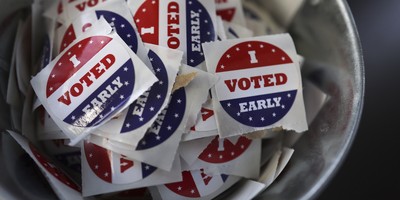NHA TRANG, Vietnam - Rod Kjersten has returned to Vietnam for the first time since he was a nurse in the U.S. Air Force hospital in Cam Ranh Bay. Now 77, he recalls the precise date when he left - May 28, 1970. He served at the hospital for two years where he treated wounded American soldiers and saw many die. He says while he was initially "gung-ho" about the U.S. and South Vietnamese war efforts, he has since become "neutral." Asked why, he said it was after seeing the Ku Chi tunnels on this trip. These were some of the tunnels used by North Vietnamese and Viet Cong soldiers to hide and "pop up" to shoot at Americans.
There is a museum of sorts requiring paid admission so one can not only see the tunnels, but a propaganda film that shows the camouflaged traps. Kjersten said that, especially after touring the presidential palace, "it suddenly struck me that the goal of both sides was the unification of Vietnam." Yes, but for different reasons.
I saw an example of those different reasons at the presidential palace in Ho Chi Minh City (formerly Saigon). A woman was leading about 20 children, all dressed in red, to a U.S. war plane that had been shot down and placed on display next to two North Vietnamese tanks. She appeared to be indoctrinating them in the government's version of the war and how the U.S. was the enemy.
There was a different scene a few miles up the road, competing for the hearts and minds of Vietnamese children. It was inside the Phan Thiet Evangelical Church where Vacation Bible School children were singing praises to God. Freedom of religion is supposed to be guaranteed in the Vietnam Constitution, but it is limited mostly to those churches that register with the government. According to Human Rights Watch: "Vietnam systematically suppresses basic civil and political rights. The government, under the dictatorial one-party rule of the Communist Party of Vietnam, severely restricts the rights to freedom of expression, association, peaceful assembly, movement, and religion."
Recommended
In the major cities, Vietnam appears prosperous. Motorbikes swarm the streets like an invasion of locusts. Shops carry brands familiar to Americans (at much lower prices because so much is made here using cheap labor). But when one leaves the big cities, many streets are lined with dilapidated shops that appear empty with few or no customers. Trash defiles these streets and graffiti defaces some structures. I didn't see a lot of smiling faces in the week I spent here. As in the U.S., hotels here fly the flags of several nations, with one exception. Understandable.
Signs celebrate the unification of Vietnam. In April there was a large military parade in observance of the day.
Many things contributed to the fall of South Vietnam. These included declining support for the war at home, corruption in the South Vietnamese government, the lack of good military training for many South Vietnamese troops, lying by American officials about "body counts" and alleged "progress," along with the high motivation of North Vietnam to unify their country and expel Americans. A growing media opposition to the war added to the decline in morale among U.S. forces that remained in Vietnam until the end. A general cynicism set in, especially among the young, toward American institutions, politicians and the country, itself. Some returning veterans were spat upon.
Historians will continue to debate about Vietnam for many years. Vietnam systematically suppresses basic civil and political rights. The government, under the dictatorial one-party rule of the Communist Party of Vietnam, severely restricts the rights to freedom of expression, association, peaceful assembly, movement, and religion. Vietnam veterans who served honorably, and relatives of the 59,000 American service members who died. It should have been a warning that American values can't be imposed on people who do not share them in sufficient numbers. Apparently we have not fully learned that lesson.
North Vietnam won the war, but freedom for the Vietnamese people was a casualty.

























Join the conversation as a VIP Member